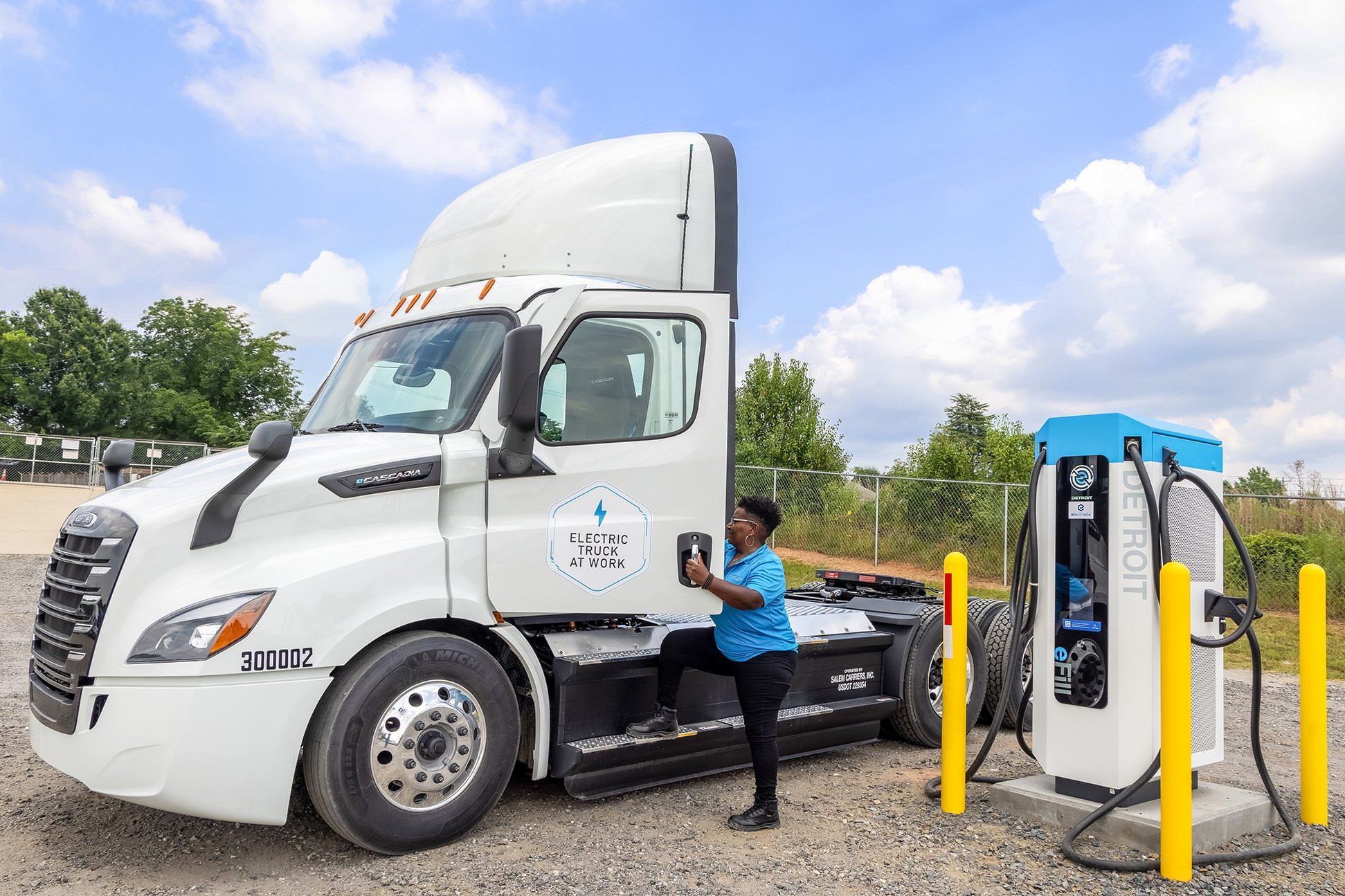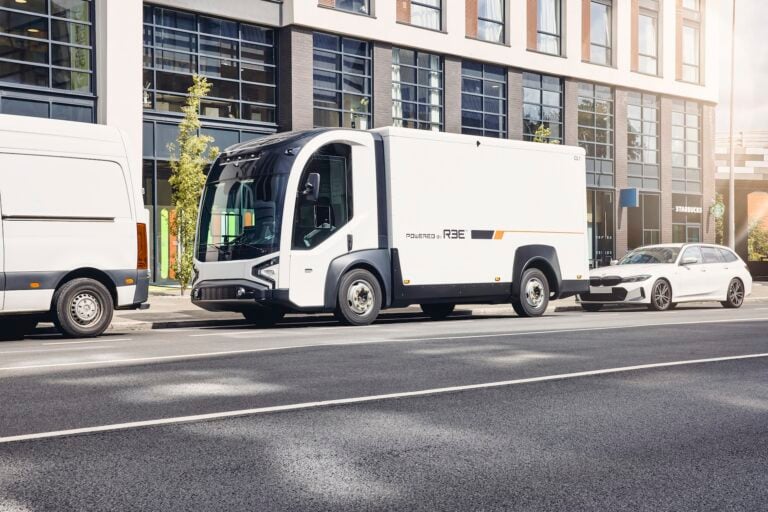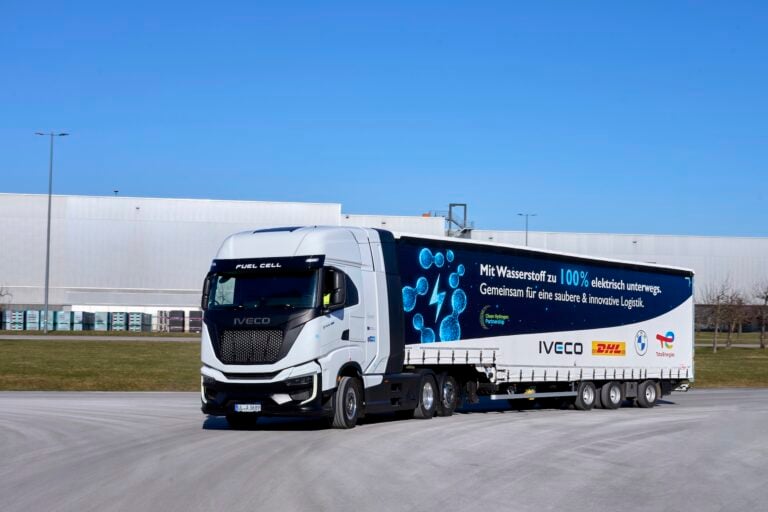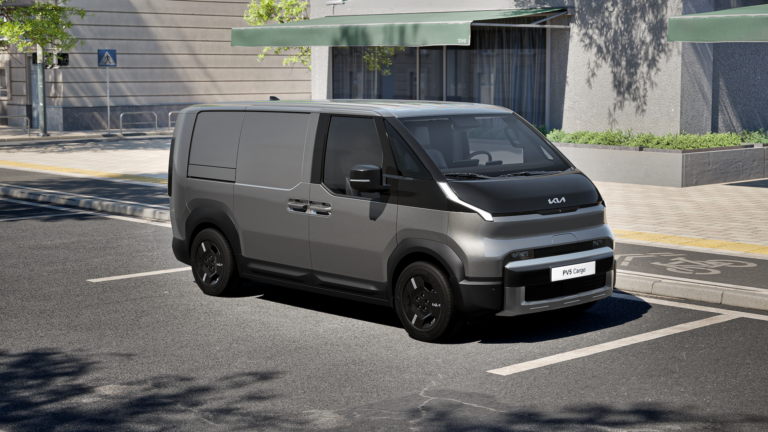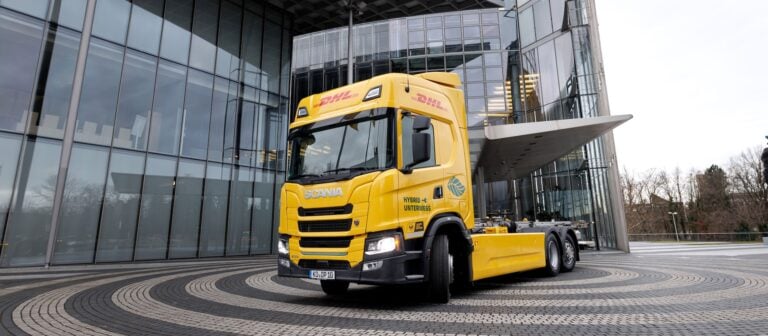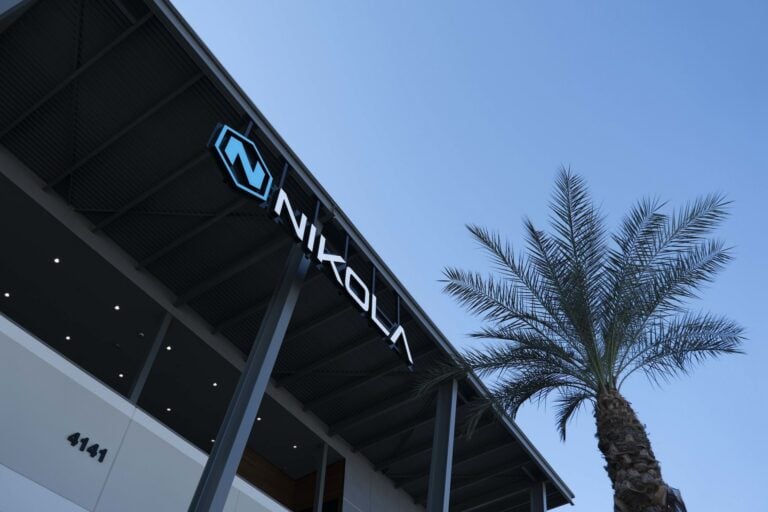Sign up for our popular daily email to catch all the latest EV news!
Daimler Truck North America (DTNA), Daimler Truck Financial Services (DTFS), Salem Carriers, and Electrada have teamed up to electrify logistics operations at Salem Carriers’ hub near Charlotte, North Carolina. This initiative, which builds on previous electrification efforts in the Pacific Northwest and Mexico, involves a comprehensive Charging-as-a-Service (CaaS) solution provided by Electrada. The collaboration aims to foster sustainable transportation by integrating zero-emission vehicles (ZEVs) into DTNA’s supply chain.
Key Highlights:
- Continued Electrification of Inbound Logistics: Building on earlier initiatives, this collaboration facilitates the integration of ZEVs into DTNA’s supply chain, reinforcing the company’s sustainability pledge.
- First CaaS Project for DTFS with Electrada: This partnership marks DTFS’s inaugural implementation of CaaS, setting a precedent for future electrification efforts.
- Service-Level Agreement Backed CaaS Solutions: The performance-backed CaaS model for depot electrification is recognized as the most reliable approach for critical transport operations.
- Custom Electric Service Program: A tailored electric service program caters to specific operational needs and duty cycles for Salem’s DTNA operations, ensuring energy cost stability.
- Integration with Duke Energy Microgrid: Located adjacent to DTNA’s eastern U.S. manufacturing facility, the Duke Energy/Electrada mobility microgrid will provide Salem with reliability-guaranteed electric fuel. This microgrid features solar generation, stationary energy storage capacity, and best-in-class energy management applications.

By creating a robust charging infrastructure, this initiative addresses the challenges of transitioning to ZEVs and supports building confidence and scale in the logistics industry.
Jeff Allen, Senior VP of Operations and Specialty Vehicles at Daimler Truck North America, underscores the project’s significance: “This program with DTFS, Salem, and Electrada reinforces DTNA’s commitment to decarbonization throughout the supply chain by seamlessly using Daimler vehicle and energy solutions available to all logistics enterprises today. Electrifying our inbound logistics operations is a clear testament to the reliability of DTNA’s electric Freightliner trucks, combined with high-performance charging infrastructure and rigorous energy management. There’s no better validation point to the market than being the customer of your own solution.”
Stephan Unger, CEO of Daimler Truck Financial Services, emphasizes the importance of services for the ZEV transformation: “By addressing the charging infrastructure, we are able to better support zero-emission truck goals and ultimately unlock larger environmental and social-economic benefits. This project is an important step in the DTFS transformation, from pure financial services to a complete service provider for the commercial vehicle industry.”

Dennis Giff, General Manager at Salem Carriers, acknowledges the project’s impact: “Introducing battery electric vehicles to our operations was a new initiative. The DTFS/Electrada approach was unified, aligned with our operating needs, and set the stage to scale future electric vehicle integration into our services.”
Kevin Kushman, CEO of Electrada, highlights the benefits of comprehensive service bundling: “Only through the comprehensive bundling of services are logistics companies, like Salem, able to eliminate the capital, technology, and energy price volatility risks of launching a zero-emissions fleet. We’re proud to team with Daimler Truck Financial Services and Daimler Truck North America to demonstrate how to meet the reliability and TCO requirements of a critical logistics function with our zero-emissions CaaS solution.”
In line with its sustainability goals, DTNA aims to achieve carbon neutrality for all new products and services from direct suppliers in Europe, the United States, and Japan by 2039. As early as 2020, the Portland Truck Manufacturing Plant, where the Freightliner eCascadia and eM2 are built, achieved CO₂-neutral production. DTNA plans to achieve CO₂-neutral production at all remaining truck manufacturing plants by 2025. Recognizing the growing importance of product manufacturing emissions within the electric product lifecycle, DTNA is implementing sustainable supply chain measures and views suppliers as partners in its sustainability journey. In addition, DTNA is proactively developing solutions to optimize the entire lifecycle of the batteries used in its electric trucks, including repairing, remanufacturing, repurposing, and end-of-life recycling.
Sign up for our popular daily email to catch all the latest EV news!

